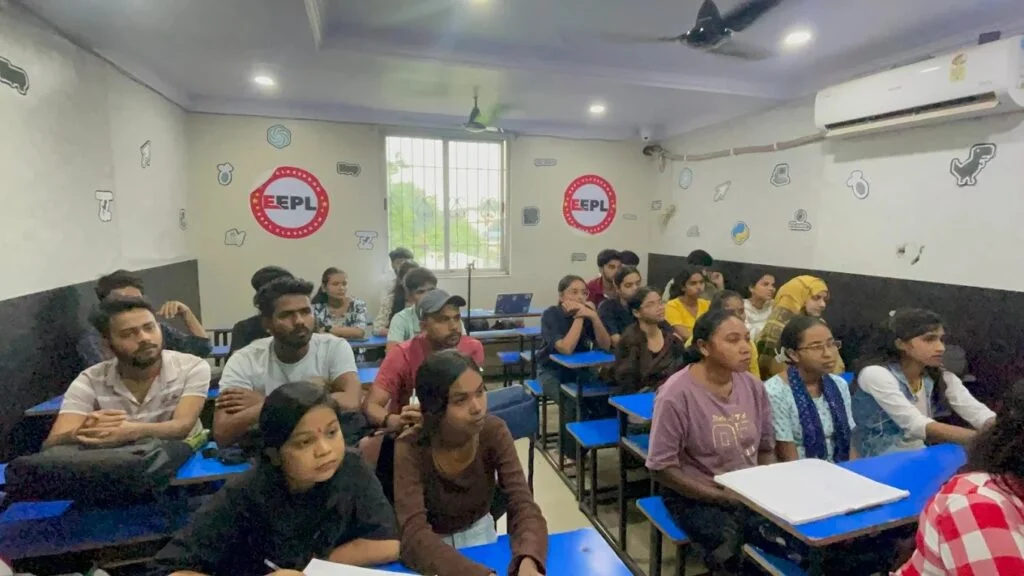1. General Differences Feature CBSE Chemistry JEE Chemistry Depth of Concepts Conceptual but more theoretical More application-based and problem-solving oriented Mathematical Involvement Basic numerical calculations Extensive numerical problems, especially in Physical Chemistry Difficulty Level Moderate High (JEE Advanced is particularly tough) Additional Topics Limited to NCERT syllabus Includes extra topics beyond NCERT
2. Content-Wise Difference A. Physical Chemistry Topic CBSE JEE (Main & Advanced) Some Basic Concepts of Chemistry Basic mole concept, stoichiometry Advanced numerical problems on mole concept Atomic Structure Bohr’s model, quantum numbers, electronic configuration Schrödinger equation, de Broglie wavelength, Heisenberg’s uncertainty principle (more mathematical approach) Thermodynamics Basic laws, enthalpy, entropy More rigorous approach to entropy, Gibbs free energy, spontaneity Equilibrium Law of mass action, Le Chatelier’s principle Numerical problems in buffer solutions, solubility product, advanced equilibrium concepts Electrochemistry Nernst equation, electrochemical cells Concentration cells, advanced electrode potential problems Chemical Kinetics First-order and zero-order reactions Collision theory, Arrhenius equation derivations Surface Chemistry Basic adsorption, catalysis Advanced adsorption isotherms, numerical problems
B. Inorganic Chemistry Topic CBSE JEE (Main & Advanced) Periodic Classification Periodic trends More emphasis on exceptions, deep conceptual questions Chemical Bonding Hybridization, VSEPR theory Molecular orbital theory (MOT), Fajan’s rule, back bonding Coordination Compounds Werner’s theory, isomerism Crystal field theory (CFT), Jahn-Teller distortion p-Block Elements Group 13–18 elements (general trends) More reaction mechanisms, exceptional behaviors, and deeper analysis d- and f-Block Elements General properties Advanced color, magnetic properties, and reaction mechanisms Metallurgy Basic principles Thermodynamics of metallurgy, Ellingham diagrams
C. Organic Chemistry Topic CBSE JEE (Main & Advanced) General Organic Chemistry Inductive effect, resonance, hyperconjugation Deep understanding of reaction mechanisms, more exception-based questions Hydrocarbons Alkanes, alkenes, alkynes Advanced mechanisms: free radical halogenation, polymerization Alcohols, Phenols, Ethers Properties, uses, reactions Detailed reaction mechanisms, distinguishing tests Aldehydes and Ketones Nucleophilic addition reactions Advanced mechanisms: Perkin reaction, Aldol condensation variations Carboxylic Acids Acid strength comparison Decarboxylation, HVZ reaction Amines Basicity order, simple reactions Advanced conversions, distinguishing tests Biomolecules Carbohydrates, proteins, nucleic acids More application-based questions, chromatography Polymers Classification, examples Depth of polymerization mechanisms
3. Additional Topics in JEE (Not in CBSE)
Physical Chemistry : Solid-state defects, quantum mechanics (Schrödinger equation applications)Inorganic Chemistry : Lanthanoids & actinoids, reaction mechanisms in transition metalsOrganic Chemistry : Named reactions like Wolff-Kishner reduction, Hofmann rearrangement, detailed stereochemistry
4. Conclusion
CBSE Chemistry is more theory-oriented and sufficient for board exams.JEE Chemistry requires deeper conceptual understanding, numerical problem-solving skills, and additional topics beyond NCERT.For JEE Advanced , the questions are more analytical, requiring logical thinking and application of multiple concepts.
For More Information and Updates, Connect With Us*
Stay connected and keep learning with EEPL Classroom!












